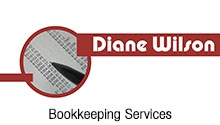Our Guide to low deposit lending and options – Part one
 It certainly is a confusing lending environment out there, especially if you don’t work in the industry and are dealing with lending, day in, day out.
It certainly is a confusing lending environment out there, especially if you don’t work in the industry and are dealing with lending, day in, day out.
With recent changes and rules put in place by the Reserve Bank in regard to low deposit lending and what banks can and can’t do in this space many low deposit buyers, who are traditionally first home buyers, are sitting, scratching their heads wondering if the dream of owning their own home is getting further and further out of their reach. Some would be if they could be purchasers are unaware that banks are still, regardless of these rules, lending above 80% of purchase price. Yes, there are lending restrictions but we are seeing First Home Buyers pre-approved on a regular basis provided certain criteria is met.
So, what are the options, and what is the criteria that needs to be met?-Banks tend to be secretive beasts in regard to their lending policies and rightly so as it’s a competitive industry out there and they also have risk reduction to consider. If you disclose your policy completely you run the risk that a small percentage of people will take advantage of this knowledge and present an application that in theory “ticks all the boxes” when in reality it doesn’t. We, as prudent Mortgage Brokers respect this, however we also appreciate that the borrower needs to know what they need to do to put their best foot forward to become pre-approved and in a position to finance themselves into a property.
We hope therefore, that this guide will educate and inform you and give you tips and tools that enable you to know how to move forward in your quest to become a home owner. It’s something we, as Kiwi’s, have held dear to our hearts for a long time. It’s in our culture and our history, as ingrained as the good old gumboot!
So, let’s start!
“Normal Bank Criteria” for borrowers with less than a 20% deposit
Let’s pretend there is a big pot of money with $50 million dollars sitting in it. That is what “Bank X” has to lend this month to customers with 20% of purchase price held in cash of their own. What the Reserve Bank has said is that only 10% of this $50 million dollars can therefore be lent to low deposit borrowers with less than 20% deposit. Naturally depending on the particular banks business position, this amount can vary and these figures are only used as an example, however, the more lending that is provided to clients with a 20% deposit, or more than 20% equity in their homes, the more that can be lent to low deposit borrowers.
Due to these restrictions and the demand for low deposit lending, there are only a certain amount of borrowers that will be lucky enough to make the grade to use these funds. This is where the banks will be picky and choose the borrowers with certain attributes, however don’t be fooled into believing that Banks aren’t accepting applications that fall into this category right now.
So, what are the attributes you, as a potential borrower, need to display?
Strong ability to service the loan with a strong excess of funds that are unaccounted for, above the particular banks normal servicing criteria. If you have run the figures on a particular lenders mortgage calculator and you can only just borrow what you need to make your purchase, then chances are you are unlikely to be approved. In saying that, mortgage calculators are only as good as the operator, often scale back what you can actually borrow to avoid telling clients they can borrow less than they thought, and policy that you don’t know about may skew the result. An example of this is that some banks use the full credit card limit as part of your outgoings, utilised or not, and others just the balance. Incomes are often incorrectly calculated and input or percentages the bank will use of certain incomes is unknown to the user. To be sure of your ability to borrow contact your Registered Financial Advisor who has access to each Bank’s full servicing calculator and knows the specific’s around individual policies.
Stability of residence and employment- Banks want to see continuity of residence. It’s not a good look if you’re moving every few months and may indicate problems with Landlords, relationships or jobs. Not everyone is created equal and with explainable circumstances things may be workable, however don’t be fooled that non-disclosure of real circumstances will go undetected as credit checks and references need to stack up. Remembering that the bank is lending you their money and asking yourself the question if you would realistically lend a substantial amount of your money to someone you don’t know particularly well is often a reminder of how they think. On the job front, the Bank’s are looking at term of employment in the same field with the ability to explain changes that are satisfactory. I hated the last three jobs may indicate that your decision-making is not superb.
Where and how you obtained you obtained your deposit- Doesn’t it feel great when we achieve a goal and did it all by ourselves, and aren’t we protective of it when we did! Most people would agree that we look after our belongings much more readily than when we are simply handed something on a plate. Statistics reinforce this and so putting some hard graft into saving for your own home makes it much less likely that you’ll walk away when things get tough. It’s much easier to lose Mum and Dad’s money (sorry folks) than your own. It will hurt and is most likely to damage the relationship but it’s somehow not quite so bad as loosing all the overtime hours you put in and holidays with friends that it took to save your deposit. Therefore the bank is looking to see what contribution you have made yourself. Rule of thumb is that most of them, there are a few exceptions, would like to see at least 5% of the purchase price saved yourself. This can be from Kiwisaver contributions if this is your first home and an explanation on how that works can be found here. If you’ve owned a home before there are certain criteria you need to meet to prove you are in the same or similar financial position to a first home buyer. Information on becoming a second chance home buyer through Housing NZ can be found right here.
Taken you meet certain criteria you may also be eligible for a First Home Buyer Subsidy for each borrower that has been contributing the minimum requirement to a Kiwisaver Scheme continually for 3 years. This subsidy is $1000.00 per year for a maximum of five years contributions so a couple both contributing the minimum to Kiwisaver for 5 years continually may be eligible for a subsidy of $10,000.00 which is not to be sneezed at especially as the Government is not asking for any type of repayment at this stage.
On top of these funds, any savings of your own or gifts from kind family member or friends won’t go astray, reduce your lending which saves you interest, reduces your payments and increases your chances of becoming approved. Banks will want a clear understanding of any gift you receive, whether it truly is a gift or a loan and if it is the latter the terms will need to be fully understood.
Saving regularly, in a separate account which you don’t dip into for other short or long-term savings goals is a good idea, as is saving an amount equal to your proposed mortgage payment minus your rent. This shows the bank that you are able to make the relevant repayment. Saving $50 per week over a long period to fund your deposit shows commitment but not the ability to tighten your belt if your housing costs are about to rise with a home loan.
Credit worthiness and your ability to say no to short-term finance offers!-Have you always paid your debts on time? We aren’t just talking Hire Purchases here, but utilities, gym memberships, car registrations and such like because in this lending environment it matters more than ever before, and it mattered then! Changes were made to credit reporting in 2012 and can be found on the site of the Office of the Privacy Commissioner. Repaying on time, not just defaults is now important and helps to paint a picture of your credit worthiness, which all lenders are most interested in. If you haven’t set up direct debits or automatic payments to those who you pay regularly, perhaps now is the time to make this a priority!
If you do have credit issues, in this environment and as a Low Deposit borrower it may be a stumbling block in getting you across the line, dependant on amount, frequency and reason and the first thing you should be doing is repaying your outstanding arrears or debt immediately. We can offer advice in regard to these issues and whether your application is worth submitting at this stage.
Got Hire Purchases, Personal Loans, family debts or credit cards? The ability to afford them and reliability in repaying them is not all that is important. It is an absolute fallacy that to obtain a Home Loan you need a credit rating and the way to get one is through taking on debt. The bank would much rather see no adverse credit history and few enquiries and assets you have saved for on your personal statement of position with no corresponding loan. To have little assets for your age may show bad spending habits, or perhaps a relationship break up out of your control and these circumstances individually are considered on their merits. and a lot of short-term debt no matter your ability to repay may say you find it hard to say no going forward. The last things the bank wants is to have to sell you up because you can no longer afford it.
and finally…your account management-Have you operated your account within its limit, ensured that cleared funds are in the account when auto payments and direct debits are due? Even a few hick ups seeing your account over the limit by a few dollars can then spur bank fees into force, overdrawing the account more and wasting your time sorting them out! It really is important that you have good control over your finances, know what is coming in and out and ensuring a balance to allow for monthly fees, like them or not! Going back to basics and taking a bit of time doing a formal budget is never a silly thing to do, gives you control over your spending and lifestyle and once implemented and followed is actually quite rewarding! For some really good tools to help in this departmentt try Sorted which is an independent site.
So…in summary
Bank’s are lending through normal bank policy to 95% of purchase price on a case by case basis, where funds are available as per the Reserve Bank rules, however they can afford to be choosy and want good quality borrowers on their books.
Bank fees, Low Equity insurances and reporting costs for Low Equity Loans must be considered in your decision making process and will be covered in our next edition, along with further options such as the Welcome Home Loan and other loan options where parents or other certain third-party guarantors are willing to assist if approval through “normal bank policy” can’t be met.
Happy saving!














 Speed Networking
Speed Networking 


















Leave A Comment
You must be logged in to post a comment.